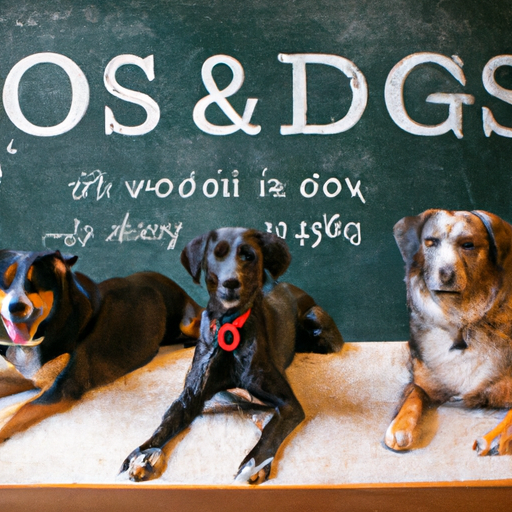Understanding Canine Behavior
You might have noticed that dogs, just like humans, have their unique personalities. Understanding your dog’s behavior is key to establishing a strong, healthy relationship with them. Keep in mind that every dog is different and that generalizations might not always apply. Here are a few ways you can understand your dog’s behavior:
- Tail wagging: Often associated with happiness, but it can also signify fear or aggression.
- Barking: They might be bored, excited, or sensing danger.
- Panting: A normal behavior in dogs but can also indicate stress or pain.
Pay attention to these behaviors. They will guide you through your journey as a caregiver to understand your dog better.
Providing Proper Nutrition
Nutrition is the cornerstone of a dog’s health. Here’s a basic guide to feed your dog:
- Puppies: High-quality puppy food is recommended for puppies. The food should be rich in proteins and fats to support their growth.
- Adult Dogs: As they age, your dog’s dietary needs might change. They might need fewer calories if they are less active but still need a balanced diet.
- Senior Dogs: Older dogs might need food that is easy to digest and has components to support joint health.
| Age of Dog | Type of Food |
|---|---|
| Puppy | High protein |
| Adult | Balanced diet |
| Senior | Easy to digest |
The Importance of Exercise
Exercise is essential for your dog’s physical and mental wellbeing. It helps keep their weight under control and reduces behavioral problems. Here are some exercise ideas:
- Regular walks: Walk your dog at least once a day. It’s good for both your health and theirs.
- Fetch games: These games can stimulate your dog’s mind and body.
- Dog parks: A great place for social interaction with other dogs.
How to Train Your Dog
Training your dog can seem like a daunting task, but it’s an opportunity to engage with them on a deeper level. Remember to be patient and consistent. Here are some steps to guide you:
- Start with basic commands: “Sit”, “Stay”, “Come”
- Use positive reinforcements: Reward your dog with treats or praises when they follow a command.
- Be consistent: Use the same commands and actions to avoid confusion.
Looking After Your Dog’s Health
Your dog’s health is a top priority. Regular vet check-ups and vaccinations are essential. Here are some signs that your dog might be unwell:
- Loss of appetite
- Changes in behavior
- Unusual aggression or fear
Remember, early detection of health problems can lead to more effective treatment.
Frequently Asked Questions (FAQs)
How often should I feed my dog?
Adult dogs should be fed twice a day, morning and evening. Puppies require more frequent feeding.
What should I do if my dog is overweight?
Consult your vet for a diet and exercise plan to help your dog lose weight.
How can I tell if my dog is sick?
Look for changes in behavior, eating habits, or physical appearance. If in doubt, consult a vet.
What should I do if my dog is not responding to training?
Be patient and persistent. If the problem persists, consider getting help from a professional dog trainer.
What vaccinations does my dog need?
The core vaccinations for dogs are for rabies, distemper, parvovirus, and adenovirus. Your vet can provide a comprehensive vaccination schedule based on your dog’s specific needs.



